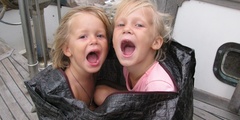This article describes my six years of experience raising children on a yacht. The protagonists of the article are my children of six and four years old, on the example of whose life I tell about the difficulties and joys of a family with children, who chose the whole world as their place to live.
«The most dangerous moment for the child in the whole cruising process is his trip by car to the boat» - from the book «Life afloat».
Learning that our children live on a yacht and participate with us in yachting trips, people often aghast and look at us with some doubts about our adequacy. Traditionally, yachting has been considered an activity for strong men who are on the verge of struggling with the difficulties of crossing the sea.
The sea is traditionally perceived as a hostile element, where there is no place for children, but even women.
But despite this belief, and in spite of it thousands of yachts with children cross the oceans of the world. Cruise yachts are inhabited by children of different ages and nationalities, who study at home school according to the programs of the chosen countries. These are children whose very style of life brings up freedom, tolerance of otherness, love and respect for nature in their families since infancy.

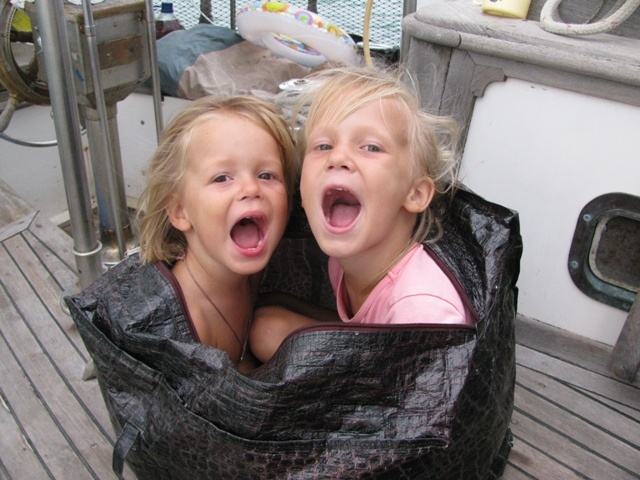
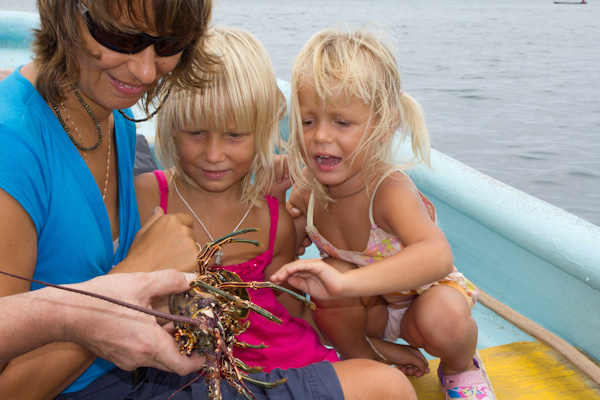
Yachting children are most often relaxed and sociable - they are used to quickly find contact with children and adults who speak different languages. Children growing up on yachts always have the opportunity to ask their parents any question, which is why they have good speech and rich vocabulary.
Typically, they live in a full family, because only members of a full family are able to withstand each other twenty-four hours a day, being in a confined space.
Accordingly, the descendants of such families have a healthy psyche and by definition calm and friendly. Yachting children are most often inquisitive, they have an open receptive attitude to the world, as no one imposes social stamps on them. They are not encouraged to be like Petya or Vasya, to be like good students, to be like everyone else. They are individuals who learn to find questions on the answers they are interested in in the book of life under the guidance of their parents, who themselves have chosen the path to freedom, and therefore hardly wish their children to become members of the social matrix. These children are protected from the influence of the consumer society, they do not have the possibility and need to spend time in front of TV, their Internet connection time is most often limited, so they know how to use the Internet on business.
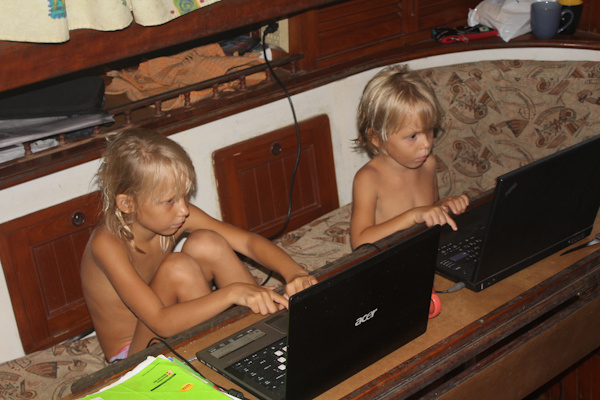
They are most often alien to snobbery, which contradicts the idea of openness of knowledge, they are well able to adapt to different social environments, as they usually have a wealth of experience with people from different social groups. Yes, they are adaptive, but most likely they will not want to adapt to what they do not like because they know that they always have a choice. They tend to speak several languages, and if they have to learn another language, they don't make it a problem. Their friends are scattered all over the world, and when they grow up, they have leads and contacts in different parts of the world.
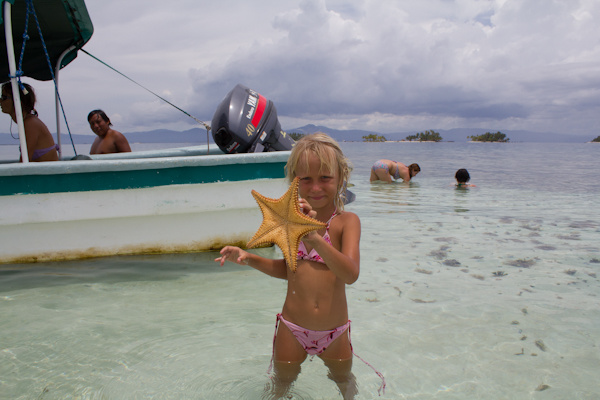
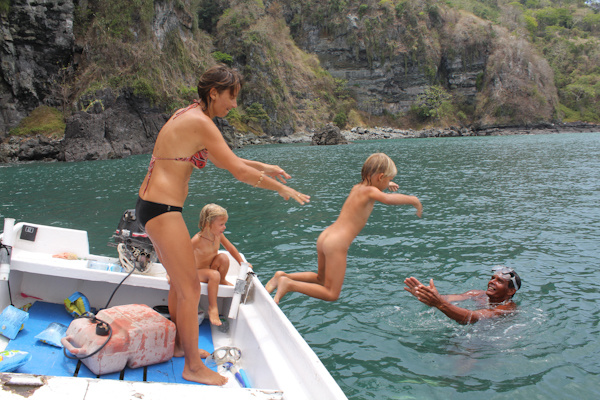
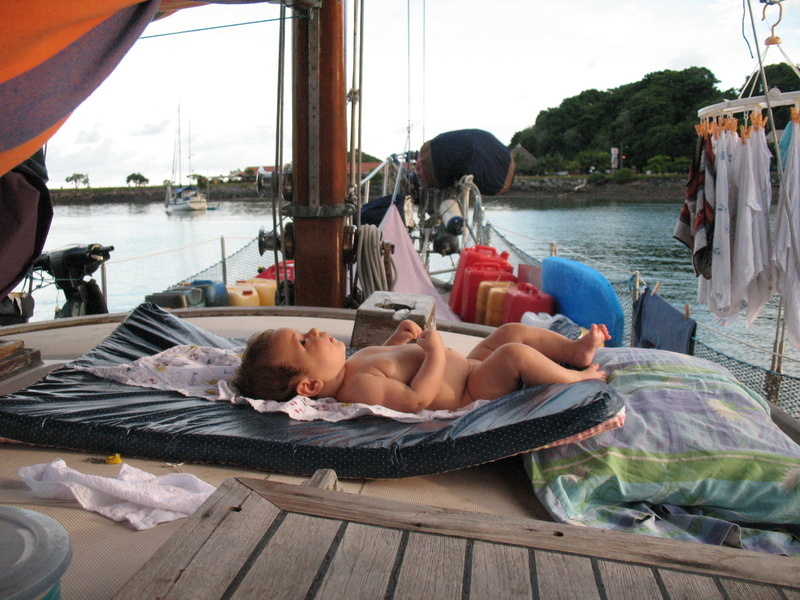
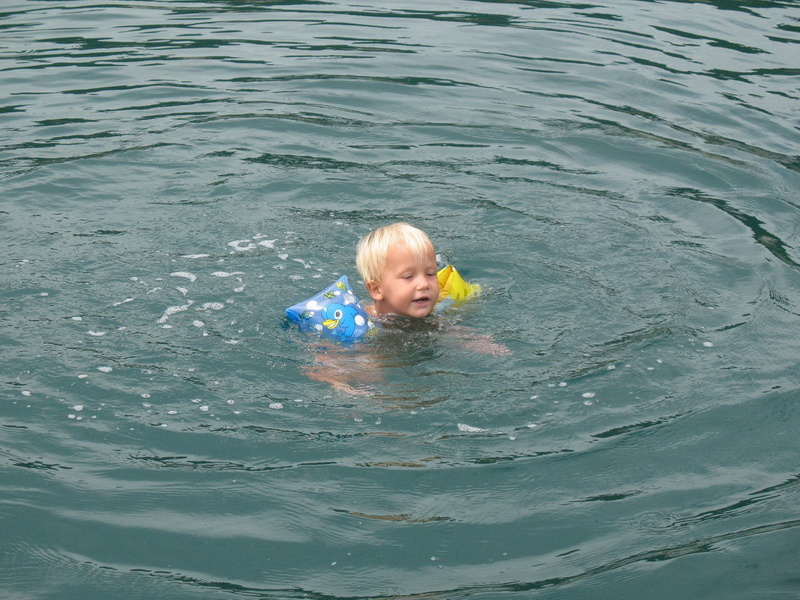
As for my children, they saw a lot of things at an early age, which I think is breathtaking for many adults who rarely leave their homes. They sailed with huge turtles, fed with raccoons, dived for the stars of the sea, drove a dinghy motor, drove a yacht while standing at the helm.
Swimming with a mask and watching fish is like playing in a sandbox for an urban child, running away from a monkey, diving in the water from a bogey above the sea, their favorite pastime is clinging to a board tied to a dinghy walking under an engine.
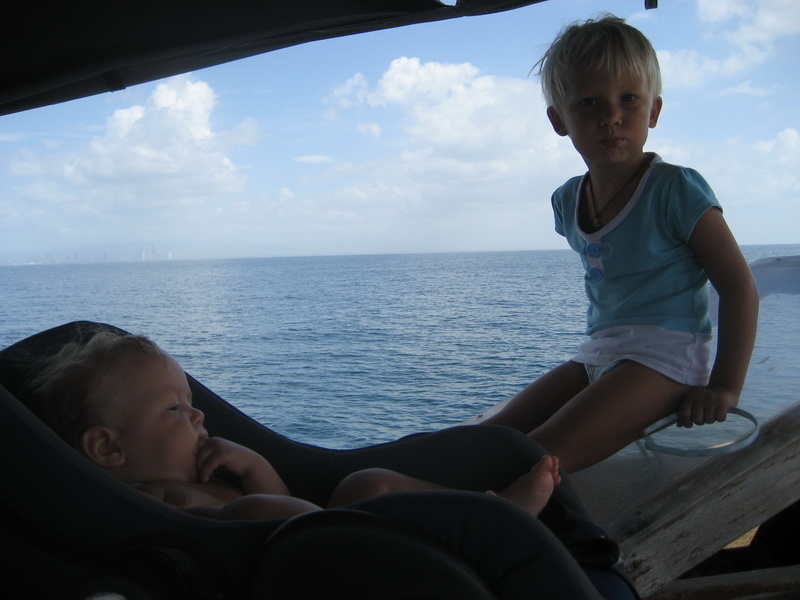
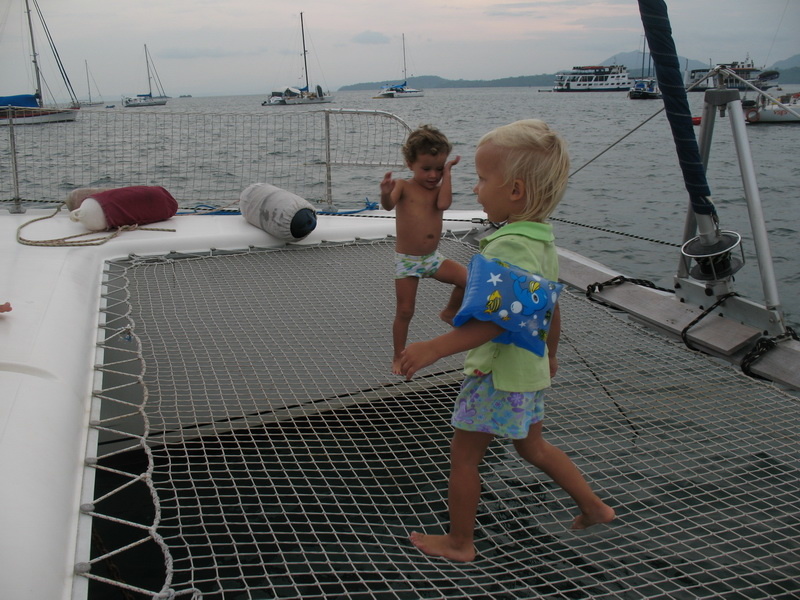
They know how to appreciate the beauty of sunsets and love to look at stingrays jumping out of the water. They received huge streams of love and admiration from the locals, who melt at the sight of a light child. In Cuba, Colombia, Panama, Venezuela and Panama, our children have been delighted and expressed openly and without shyness by the people of these countries. They are used to being loved and admired. Do I have the courage now to bring them to St. Petersburg?
Safety of life
And as for the children's life at sea, I want to talk about it, as well as about many other things in this article, as many people ask me about how our children live, and how safe such a life is. There are even such strange questions for us, such as: «And when you go out to sea, will you leave your children, of course, on the shore, safe with their grandmothers»? Well, of course we won't! How can we deprive our children of the most effective in terms of child development and knowledge of the world - travel.
As for safety, I think everything in this life is relative.
Those who reproach us for the lives of our children are most often living in big cities, where many are now in a state of constant or unrecognized fear for their children's lives.
Crazy traffic on the streets, accidents, jerks-drivers falling from the roofs through the fault of frost and careless utilities icicles. Maniacs in the parade, accidents in pipelines with hot water breakthroughs. I think living in the city and occasionally experiencing a sense of growing panic when a child is 15 minutes late from school can be a great addition to this list. And the daily aggression in the subway and on the streets, the terrible ecology of big cities, polluted streets. Who will estimate the harm daily inflicted to the child «by brainwashing by» teachers with washed brains, zombie television, aggressive advertising, forming an ideal consumer - from my point of view, these influences also represent a threat to the child's life, only the life of the mental.
Of course, life at sea can also be fraught with danger. But just as a person living in a city adapts to the conditions in which he or she lives and is unlikely to send a three-year-old child to cross Nevsky Prospekt on his or her own, so there are certain safety rules for families who have made cruising a way of life.
But, enough lyricism, let's move on to specific examples.
We fence off everything that we can
So. The baby showed up on the boat. They have a lot of time to spend together, so our task is to adapt one to another and vice versa. What does it take to adapt the boat to the baby's needs?
First of all, the boat has to be equipped with fences so that the child who starts to crawl does not fall off somewhere. Moreover, if it falls overboard while anchored in warm seas, it is not so terrible - from there it can be quickly extracted, the good of the human body in sea water will not sink, and dry. Worse, if a child falls from the bed, which we once experienced in our own experience, when in the beginning we have not yet had time to pull the protective net.
In order to prevent the fall of a child, we fenced all the beds on the yacht with nets. It was done in the following way. Where it was possible to pull a net from wall to wall - so it was done, and on a children's bed with an uneven edge, hooks were hammered into the ceiling and a net was attached to them, which was fixed from below.
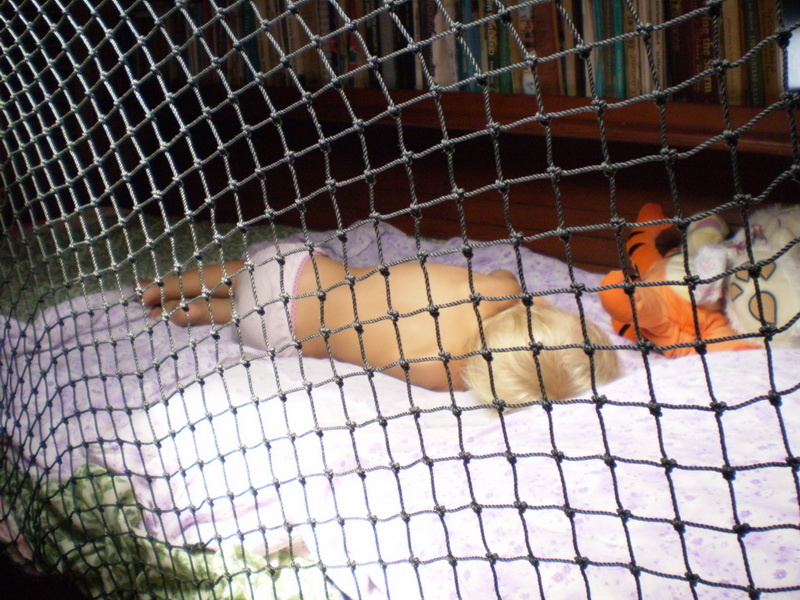
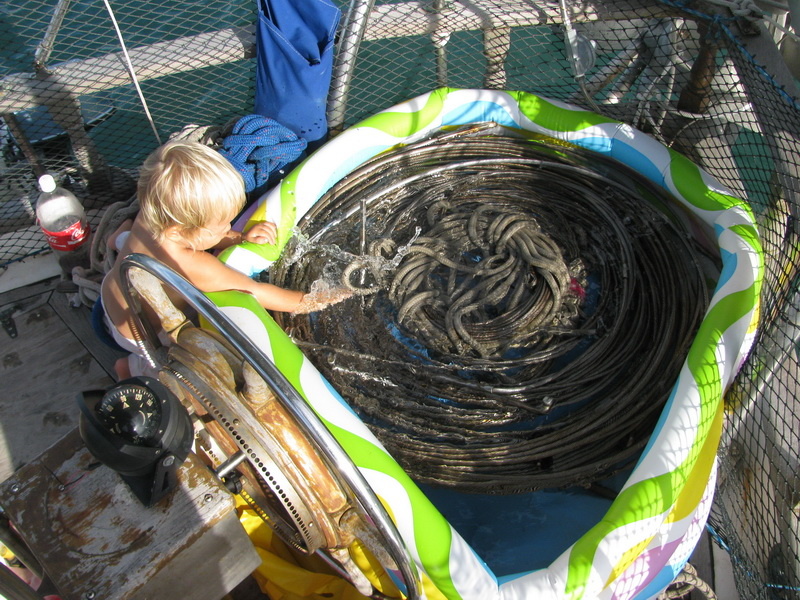
The sides of the boat. The first thing we did when we arrived in Panama was to buy a fishing net and use it to wrap the entire board along the fliers. Xyushe was a little less than a year and a half then, and the net was up to her neck - as you know, a baby can't overcome such a barrier. When I pulled the net, Xenia managed to fall overboard, frightening me with it, of course, and after 7 seconds was pulled out of the water by her father, who dived overboard before even his glasses could be removed. You can read more about this incident here.
Of course, at moments when the call to learn about the world escalated, the children tried to climb the canisters that were standing along the board, thus opening up full freedom to fall overboard as the protective net became knee-deep in them. Such exploratory impulses were followed by a reprimand: we believed that the baby was a reasonable creature and from birth explained to the children what not to do and why.
Verbal reprimand wasn't always limited to the case. Once, having caught Xenia in the canisters where she had climbed, Maxim went for quite tough actions, which we considered justified only because of the seriousness of the threat.
The child should have been clearly explained that his experiments with climbing jerrycans may result in overboard fallout, and God forbid, at this second no adult will be near - it's a serious matter.
After taking off Xyusha, who wasn't even two years old then, from the canister, Maxim hanged the child over the sea with comments that if he let her go, she would fall into the sea, and this is how the situation with climbing the canisters could end. During this barbaric procedure, the child yelled at the hoarse and shook, clinging to Maxim. Xyushu was very sorry, but we must admit that the demonstration had the desired effect.
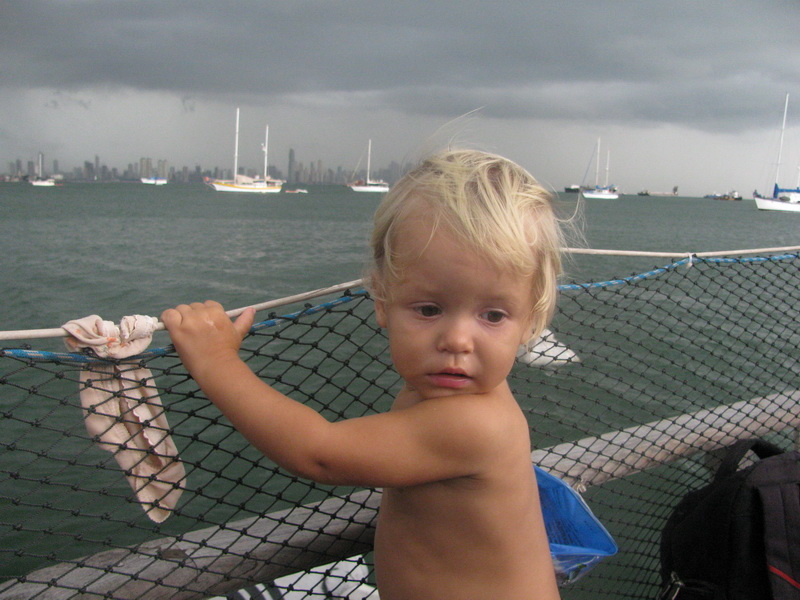
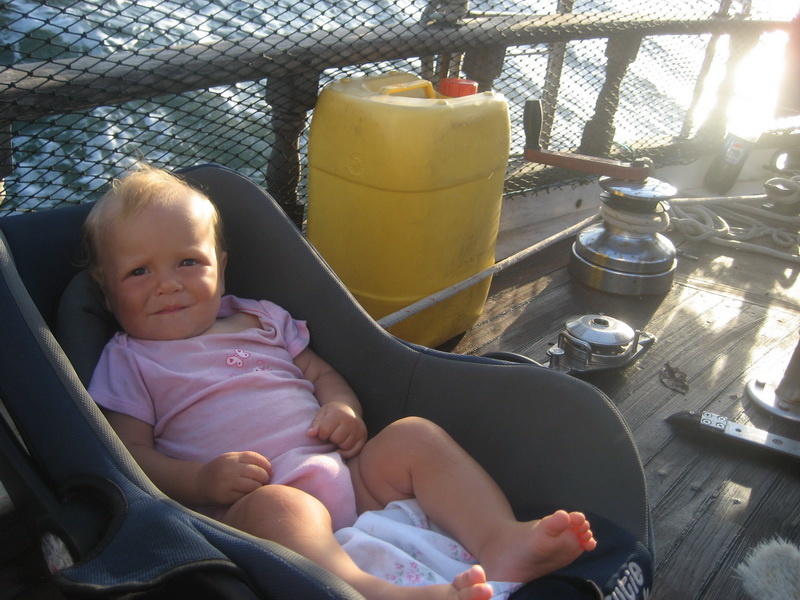
In principle, in those situations where it was possible, I allowed the child to get a negative experience (touch a hot cup, lick a bad one), or even intentionally contributed to its acquisition (within reasonable limits, slightly pinch a finger with the door, allow with some insurance to fall down the stairs). Children quite early on learned the theory and practice of cause-and-effect relationships, and often they lacked explanations. The proposal to check the explanations in practice met with a sharp rebuff.
Continuation of the article on the site of Circumvention "Annunciation": part 2, part 3
It was reprinted with the author's permission.

